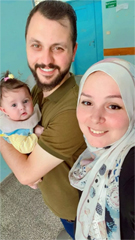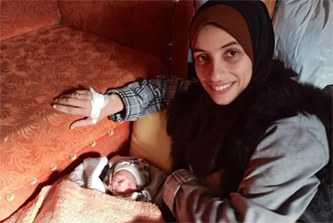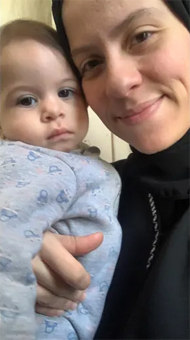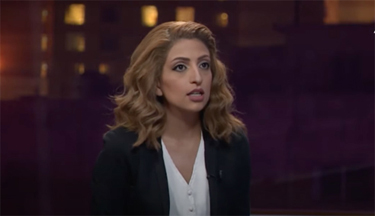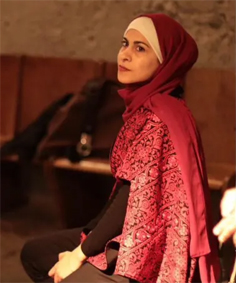|
CRY FREEDOM.net
formerly known as
Women's Liberation Front
MORE INSIGHT MORE LIFE
Welcome to cryfreedom.net,
formerly known as Womens
Liberation Front.
A website
that hopes to draw and keeps your attention for both the global 21th. century 3rd. feminist revolution as well
as especially for the Zan, Zendegi, Azadi uprising in Iran and the
struggles of our sisters in other parts of the Middle East. This online magazine
that started December 2019 will
be published every week. Thank you for your time and interest.
Gino d'Artali
indept investigative
journalist
radical feminist and women's rights activist
'WOMEN, LIFE, FREEDOM'
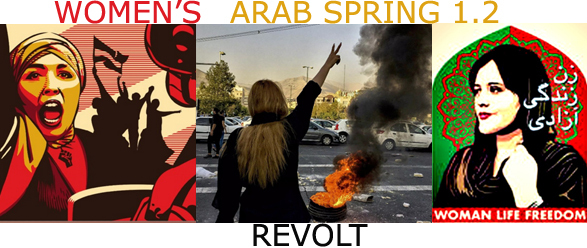
You are now at the section on what is happening in the rest of the Middle
east
(Updates
Sept. 10, 2024)
Click here for the
Iran 'Woman, Life, Freedom' section Updated
Sept
3, 2024
For the 'Women's Arab Spring 1.2' Revolt
news
click here
Updated Sept. 2, 2024
CLICK HERE ON HOW TO READ
ALL ON THIS PAGE
|
SPECIAL
REPORTS
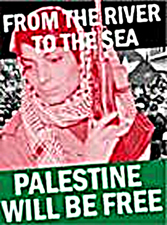
Sept wk2 P3
--
Sept wk2 --
Sept wk1 P3 -- Sept
wk1 P2 --
Sept wk1 --
Click here for an overview by week in 2024
|
September 10 - 6, 2024
Food for thought:
Since the genocidal war started at least
41.000 Palestinians have been killed of which
at least 50 %, read 20.000 + were innocent children.
Read more factual (sic) news below |
September 6 - 4, 2024
Fadwa Tuqan
"A Call of the Land that
reflects the Palestinian spirit
I ask nothing more than
to die in my country,
to dissolve and merge with the grass,
to give life to a flower
that a child of my country will pick.
All I ask is to remain in the bosom of my country,
as soil,
grass,
a flower."
and more actual news in more-facts words
Click here to go throughout
September
and earler, 2024 |
Additional
stories of utmost interest:
August 28, 2024:
<<Creating hope for Gaza's student
doctors amid Israeli bombardment...
August 20, 2024:
<<Palestinians are being
dehumanised to justify occupation and genocide...
and
August 18, 2024
<<Solidarity with Palestine must
be about decolonisation, not just ceasefire...
|
When one hurts or kills a women
one hurts or kills hummanity and is an antrocitie.
Gino d'Artali
and: My mother (1931-1997) always said to me <Mi
figlio, non esistono notizie <vecchie> perche puoi imparare qualcosa da
qualsiasi notizia.> Translated: <My son, there is no such thing as so
called 'old' news because you can learn something from any news.>
Gianna d'Artali.
France 24 - Sept 10, 2024
<<Live: At least 40 killed in Israeli strike on humanitarian zone in
south Gaza, civil defence says
An Israeli army strike on a tent camp housing displaced Palestinians in
southern Gaza killed at least 40 people and wounded 60 others, the
territory's civil defence agency said early Tuesday. The army said it
targeted a Hamas command centre in the Al-Mawasi area, which the
military had designated a safe zone early in the war. Hamas has called
the claim that its fighters were present at the scene of the strike a
"blatant lie". Follow our live blog for all the latest developments.
Summary:
Israel conducted a missile strike on a humanitarian zone in the southern
Gaza Strip that killed at least 40 people and injured 60 others. Israel
said it targeted <significant> Hamas militants, but the Palestinian
group denied allegations that its fighters were present in the area.
At least 40,988 Palestinians have been killed, mostly women and
children, and 94,825 people wounded in Israel's war in Gaza, according
to the health ministry in the Hamas-run enclave. The Hamas-led October 7
attacks resulted in the deaths of more than 1,190 people, mostly
civilians, according to official Israeli figures. Some 250 people were
taken hostage, with about 100 remaining in Gaza. Many have been declared
dead by Israeli authorities.
Yesterday's key developments:
The Israeli military said it detained a convoy of United Nations
vehicles in the northern Gaza Strip because it has intelligence
indicating that a number of <Palestinian suspects> are in the convoy and
it wants to question them. The convoy of UN vehicles and staff was
released after being detained for more than eight hours, the head of the
UN agency for Palestinian refugees (UNRWA) said. >>
Read more here:
https://www.france24.com/en/middle-east/20240910-%F0%9F%94%B4-live-at-least-40-killed-in-israel-air-strike-on-khan-younis-humanitarian-zone-gaza-officials-say-hamas-war
Al Jazeera - Sept 10, 2024
<<Israeli attack on Gaza tent camp leaves vast crater
This vast crater was the result of an Israeli air attack on Gaza's al-Mawasi
camp which killed dozens of people sheltering in tents.>>
View video here:
https://www.aljazeera.com/program/newsfeed/2024/9/10/israeli-attack-on-gaza-tent-camp-leaves-vast-crater
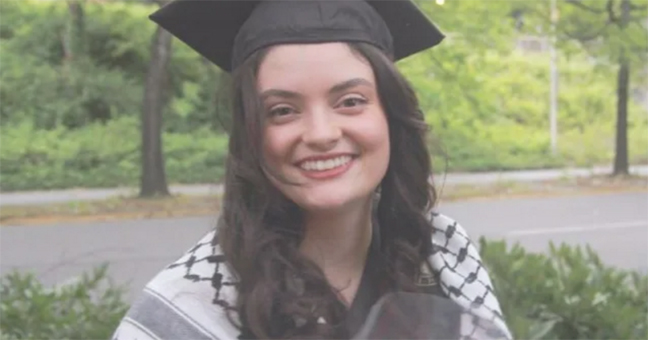
Aysenur Ezgi Eygi
BBC - Sept 9, 2024 - By Robert Greenall
<<UN calls for full inquiry into West Bank shooting
'I tried to stop the bleeding': West Bank shooting eyewitness
The United Nations has called for a "full investigation" into the
killing of a US-Turkish woman in the occupied West Bank during a protest
on Friday.
Local media reported that Aysenur Ezgi Eygi, 26, was shot dead by
Israeli forces as she took part in a weekly protest against Jewish
settlement expansion in the town of Beita near Nablus. Israel's military
said it was <looking into reports that a foreign national was killed as
a result of shots fired in the area>. Ms Eygi's family said in a
statement they were in shock and grief that the loving and "fiercely
passionate human rights activist" was gone. Aysenur Ezgi Eygi was taking
part in a protest against Jewish settlement expansion in the town of
Beita, in the occupied West Bank
The family said video showed she was killed by a bullet from an Israeli
military shooter and called for the US to investigate. The US has urged
Israel to investigate the incident. Sean Savett, spokesman for the White
House's National Security Council, said Washington was "deeply disturbed
by the tragic death of an American citizen". "We have reached out to the
government of Israel to ask for more information and request an
investigation into the incident," Mr Savett said. In a statement, Ms
Eygi's family said that given the circumstances, an Israeli
investigation "is not adequate" and called on the US to conduct an
independent investigation and "ensure full accountability for the guilty
parties". Stephane Dujarric, the spokesman for the UN secretary general,
said: "We would want to see a full investigation of the circumstances
and that people should be held accountable." Civilians, he added, "must
be protected at all times". Jewish-Israeli activist Jonathan Pollak, who
was at the protest, told BBC World Service's Newshour programme he had
seen "soldiers on the rooftop aiming". He said he had heard two separate
shots, "with like a second or two distance between them. I heard someone
calling my name, saying in English, 'Help us. We need help. We need
help.' I ran towards them," he said. He said he had then seen Ms Eygi
"lying on the ground underneath an olive tree, bleeding to death from
her head. I put my hand behind her back to try and stop the bleeding,"
he said. "I looked up, there was a clear line of sight between the
soldiers and where we were. I took her pulse, and it was very, very
weak." He added that Friday's demonstration had been Ms Eygi's first
time attending a protest with the International Solidarity Movement, a
pro-Palestinian group. The dual-national was rushed to a hospital in
Nablus and later pronounced dead. Dr Fouad Nafaa, head of Rafidia
Hospital where Ms Eygi was admitted, confirmed that a US citizen in her
mid-20s had died from a "gunshot in the head". In a statement, the
Israel Defense Forces (IDF) said: <During Israeli security forces
activity adjacent to the area of Beita, the forces responded with fire
toward a main instigator of violent activity who hurled rocks at the
forces and posed a threat to them. The IDF is looking into reports that
a foreign national was killed as a result of shots fired in the area.
The details of the incident and the circumstances in which she was hit
are under review.> In his interview with the BBC, Jonathan Pollak was
asked about the IDF's statement, where the Israeli military said
security forces had responded to stone-throwing.
Mr Pollak said there had been clashes but he felt that soldiers had been
"under no threat". There had been "no stone throwing" where she had
been, he said. US Secretary of State Antony Blinken deplored the "tragic
loss", while Turkish President Recep Tayyip Erdogan branded the Israeli
action "barbaric". Ms Eygi's family said they were wrestling with the
reality that she was gone. "Like the olive tree she lay beneath where
she took her last breaths, Aysenur was strong, beautiful, and
nourishing. Her presence in our lives was taken needlessly, unlawfully,
and violently by the Israeli military," the family said. Her family
called her a "loving daughter, sister, partner, and aunt" who was
"gentle, brave, silly, supportive, and a ray of sunshine" and "lived a
life of caring for those in need with action".
Ms Eygi was born in Antalya, as reported by Turkish media.
She graduated three months ago from the University of Washington in
Seattle, where she studied psychology and Middle Eastern Languages and
Cultures, her family said. She was active in campus student-led protests
and felt compelled to travel to the West Bank to "stand in solidarity
with Palestinian civilians". The University of Washington's president,
Ana Mari Cauce, described news of Ms Eygi's death as "awful", adding
that the former student was a "positive influence" on other students.
Israeli forces withdrew from Jenin city and its refugee camp in the
occupied West Bank on Friday, following a major nine-day operation
there.
The Palestinian health ministry says at least 36 Palestinians were
killed - 21 from Jenin governorate - in that time. Most of the dead have
been claimed by armed groups as members, but the ministry says children
are also among those killed.
In the past 50 years, Israel has built settlements in the West Bank and
East Jerusalem, where more than 700,000 Jews now live.
Settlements are held to be illegal under international law - that is the
position of the UN Security Council and the UK government, among others
- although Israel rejects this.>>
Source:
https://www.bbc.com/news/articles/c0l8rgz7rn4o
Le Monde - Sept 9, 2024 - By Claire Guillot
<<War in Gaza takes center stage at Perpignan photojournalism festival
Three prizes were awarded to Gazan photographers who depicted the scale
of the human death toll, against a backdrop of controversy sparked by
the French city's far-right mayor.
No less than three Visa d'or were awarded to Palestinian photographers
from the Gaza Strip at the Visa pour l'Image photojournalism festival in
the southern French city of Perpignan this weekend. Yet, this didn't
happen without making waves, as the murderous war Israel has been waging
in Gaza for the past 11 months following the Hamas terrorist attacks of
October 7, 2023, has stoked tensions. After Loay Ayyoub, the winner of
the young reporter prize awarded by the city of Perpignan for his work
with The Washington Post; and Samar Abu Elouf, New York Times
contributor and winner of the Sipa daily press award; it was Mahmud
Hams, an Agence France-Presse (AFP) contributor, who won the top prize,
the Visa d'or News, on Saturday, September 7, the final evening of the
festival. Hams' award-winning images show the tragic lives of Gazans:
Entire families killed or buried under the bombing, forced displacement,
as well as people's desperate efforts to feed, house and treat
themselves. According to figures from the Hamas-administrated health
ministry, the conflict has claimed over 40,000 lives, most of them
civilians. As a sign of the tensions, a pro-Palestinian protest, which
had been held that Saturday, could be heard across town. Moreover, at
the ceremony, in the city's historic Campo Santo cloister, which was
packed to the rafters, the far-right mayor, Louis Aliot, was
conspicuously absent: He had sparked a controversy at the opening of the
festival by refusing to personally award the young Ayyoub, whose
exhibition entitled "The Tragedy of Gaza" was on display at the Minimes
convent, his prize. Aliot had condemned Visa pour l'Image's lack of
<balance,> regretting the absence of an exhibition devoted to the
October 7, 2023, massacres. On local radio, he had accused the
photographer of being close to Hamas, criticizing him for referring to
the organization as <the Palestinian resistance> on his social media
accounts.
Editorial independence
On stage, the festival's new president, Pierre Conte, was keen to set
the record straight about this concentration of awards: "No one should
see this as a political message, as taking a stand in an appalling
conflict that has been going on for too long. (...) It should be seen as
a moment when the entire profession respectfully salutes, and gives its
encouragement, to the only photojournalists who are on the ground in
Gaza." Indeed, at this event which is dedicated to journalism,
professional photographers are faced with an exceptional situation:
Israel's total ban on foreign reporters entering the territory, since
the start of the war. It has forced the international media to rely on
Gazan journalists entirely, and fostered debate about informants'
trustworthiness.>>
Read more here:
https://www.lemonde.fr/en/culture/article/2024/09/09/war-in-gaza-takes-center-stage-at-perpignan-photojournalism-festival_6725409_30.html
Al Jazeera - Sept 9, 2024
<<At least eight Palestinians killed as Israeli attacks on Gaza
intensify
At least eight people killed and dozens wounded as Israel carries out
air raids across Gaza, Palestinian health officials say.
At least eight people have been killed and dozens wounded in Israeli
attacks across Gaza, according to health authorities, as Israel ordered
some residents in northern Gaza to evacuate their homes. Health
officials said two Israeli air strikes on Monday had killed seven people
in central Gaza and another strike killed one man in Khan Younis in
southern Gaza. The armed wings of the Palestinian groups Hamas and the
Palestinian Islamic Jihad said they fought against Israeli forces in
several areas across the Gaza Strip with antitank rockets and mortar
fire. The Israeli military said its forces continued to dismantle
military infrastructure and killed dozens of Palestinian fighters in
recent days, including senior Hamas and Islamic Jihad commanders. The
Palestinian Ministry of Health said on Monday that at least 40,988
Palestinians have been killed and 94,825 wounded in Israeli attacks on
the besieged enclave since October last year. In the Hamas-led attacks
on southern Israel on October 7, 1,139 people were killed.
Earlier, the Israeli military ordered Palestinians in a neighbourhood in
northern Gaza's Beit Lahiya to evacuate after it said rockets were
launched from the area at the southern Israeli city of Ashkelon on
Sunday night. The military's spokesperson released a map marking the
area, adding that <the specified area has been warned many times in the
past> and it is now <considered a dangerous combat zone>. The Israeli
military had earlier said one of the rockets was intercepted and another
fell into the sea. Nearly all of Gaza's 2.3 million people have been
forced from their homes at least once, and some have had to flee more
than 10 times. Reporting from Deir el-Balah in central Gaza, Al
Jazeera's Tareq Abu Azzoum said people in the northern Strip said they
have been getting new evacuation orders but they have no other places to
go to and they are just moving between neighbourhoods.
Polio vaccine campaign
Amid the latest evacuation orders, the United Nations urged Palestinians
in the northern Gaza Strip to go to medical facilities to get children
under the age of 10 years old vaccinated against polio. Limited pauses
in fighting have been held to allow the rollout of the vaccination
campaign, which aims to reach 640,000 children in Gaza after the
territory's first polio case in about 25 years. UN officials said the
campaign in the southern and central Gaza Strip had so far reached more
than half of the children there needing the drops. A second round of
vaccinations will be required four weeks after the first. Juliette Touma
with the UN Relief and Works Agency for Palestine Refugees told the
Reuters news agency on Monday that 450,000 of the children targeted in
the campaign had been vaccinated. "Tuesday is the hardest part when we
roll out the campaign in the north. Hopefully, that will work so we
complete the first stage of the campaign. The second and final stage is
planned for the end of the month when we have to do all of this all over
again," Touma said.
Sombre new school year
Meanwhile, on Monday the new school year in the Palestinian territory
also officially began. But more than 630,000 students could not attend
school because all Gaza educational institutions remain shut. The
Palestinian Ministry of Education said 90 percent of schools in Gaza
have been destroyed or damaged in Israel's assault on the territory.
"The longer the children stay out of school the more difficult it is for
them to catch up on their lost learning and the more prone they are to
becoming a lost generation, falling prey to exploitation, including
child marriage, child labour and recruitment into armed groups," Touma
said. Hamas said in a statement that the denial of 630,000 students of
their right to education is a "deliberate violation to all rights
stipulated by international laws, which leaves the international
community and UN agencies responsible to put an end to these crimes".
SOURCE: AL JAZEERA AND NEWS AGENCIES>>
https://www.aljazeera.com/news/2024/9/9/at-least-eight-palestinians-killed-as-israeli-attacks-on-gaza-intensify
Al Jazeera - Sept 9, 2024
<<Procession for Turkish American activist killed by Israeli forces
Video shows a procession for Turkish American activist, Aysenur Ezgi
Eygi, ahead of her body being repatriated to Turkey. Eygi was shot and
killed Friday by Israeli forces, while protesting settlement expansion
in the occupied West Bank.>>
View video here:
https://www.aljazeera.com/program/newsfeed/2024/9/9/procession-for-turkish-american-activist-killed-by-israeli-forces
Al Jazeera - Sept 9, 2024 - By Zaheena Rasheed, Maziar Motamedi and
Usaid Siddiqui
<<Israel's war on Gaza live: Hamas rejects media reports of new
conditions
More than 630,000 students in Gaza will not be returning to school on
Monday, officials said, as Israel's war on the Palestinian enclave
disrupts schooling for a second year.
Hamas official reject US media reports it presented new conditions as
part of ceasefire talks.>>
View video here:
https://www.aljazeera.com/news/liveblog/2024/9/9/israels-war-on-gaza-live-school-year-starts-without-60000-gaza-students
Al Jazeera - Sept 8, 2024 - By Ruwaida Amer
<<Are restrictions on pro-Palestine speech 'the new McCarthyism?'
Is there an attempt to chill debate on Palestine and Israel on both
sides of the Atlantic?
Read more>> and view video here:
https://www.aljazeera.com/program/the-bottom-line/2024/9/8/are-restrictions-on-pro-palestine-speech-the-new-mccarthyism
Al Jazeera - Sept 8, 2024 - By Ruwaida Amer
<<What it's like to flee Jenin’s 'earthquake' incursion by Israeli
forces
With more than 70 percent of the occupied West Bank city 'annihilated',
some families flee, while others remain trapped. Standing outside her
home in the occupied West Bank's Jenin refugee camp, Saja Bawaqneh found
herself in a familiar spot - the same one where her father had been shot
and killed by Israeli forces a few years earlier. This time, she was
waiting for an Israeli army officer to signal that it was time for her
to begin walking towards the city’s main hospital after she had been
forced out of her home, five days after Israeli soldiers - backed by
helicopters and drones - launched a 10-day incursion into Jenin. It was
1am, and she was with her 60-year-old mother, her two sisters, her
pregnant sister-in-law and her young niece and nephew. Apart from a
small bag with the children's essentials, they had nothing but the
clothes on their backs. It was not the first time the Bawaqneh family
home had been raided, nor was it the first time the camp had come under
attack. But this latest incursion, which began nearly a week ago and
lasted until Israeli forces withdrew on Friday, has been the most
intense; dubbed an "earthquake" by the city's residents.
At least 34 Palestinians have been killed during this latest operation,
which also targeted Tulkarem and other areas of the northern West Bank,
in conjunction with Israel's ongoing assault on the besieged and
bombarded Gaza Strip. Israeli army bulldozers have torn apart large
swaths of Jenin, which remained under siege for more than a week, razing
entire streets and structures. Even though Israeli army soldiers have
since withdrawn, residents fear soldiers will return after temporarily
moving to surrounding military checkpoints. "It usually takes us 10
minutes to reach the hospital on foot, but because we were walking
slowly, with our hands up in the air, and the streets were damaged - it
took us much longer," Bawaqneh, 29, told Al Jazeera.
Besieged, then displaced
Bawaqneh and six other members of her family had been hiding in their
kitchen ever since the incursion began on August 28. It was the safest
spot in their four-storey home in the heart of Jenin refugee camp, away
from large windows and from Israeli snipers stationed outside. Unable to
leave, they were rationing food, water and medicine while trapped in
their home. Five days into the raid, a group of Israeli army soldiers
came barging in after spending an hour firing live bullets towards the
house and its surroundings. "During the gunfire, we were crammed in a
corner of our kitchen, stacked on top of each other," Bawaqneh said,
describing the gunfire as "loud and excessive". "We could hear sounds of
explosions and people screaming," she said. They were all tense, trying
to picture and prepare for every possible scenario that would follow
this entry into the house.
"We made sure the children were dressed and their shoes were on. We told
them we were about to leave because we anticipated they would barge in
at any moment," Bawaqneh said. "They were scared and held tightly onto
us. Their legs were shaking so much so that they couldn't walk," she
said.
When they came into the house at about 10pm, they arrived "in
unbelievable numbers, and began searching every room with dogs",
Bawaqneh recalled. "They came with water and food, enough to last days,"
she said, adding that it was clear they were going to use the house as a
"military base". About three hours later, they were confronted by an
Israeli army officer who ordered them to leave. Bawaqneh refused, and
said it was too unsafe for the children because the streets were wrecked
and without power. "He told us, 'we're going to have to lock you in a
room'. And that's exactly what they did after confiscating our phones,"
Bawaqneh recalled. Sitting in a room adjacent to the main hall of the
house, the women were all wondering how long they were going to be
locked in for. Some 45 minutes later, another soldier unlocked the door
and told the family to leave.
"I asked again if they could guarantee our safety walking alone, in the
dark, and the officer said yes. So of course, we had no choice," she
said.
"We left, and they didn't let us take a single thing with us. We had no
food, no water, no clothes, no money." Upon arriving at the Jenin
Government Hospital, Bawaqneh quickly realised that their situation was
similar to many other families who had also been forced to leave their
homes and who ended up in the hospital. There was no way of knowing what
was going on as power cuts and the lack of internet access made it
difficult to keep up with what was happening across the camp and the
eastern part of Jenin city.
A city 'annihilated'
According to Bawaqneh, “terrified” families she encountered at the
hospital had also fled "without anything, not even a penny in their
pockets. Those who arrived before us were sleeping in the maternity ward
upstairs," Bawaqneh said. She said it was "rare to see a whole family
together", as many young people and children - especially young men who
are prone to abuse and arrests by Israeli soldiers - fled the camp to
nearby areas when the operation began. As the sun came up, people
started arriving in large numbers and families were "filling up the
courtyard" of the hospital, Bawaqneh said. Rights groups including
Amnesty International have warned that with these incursions, forced
displacement is inevitable. Amnesty also noted that there has been a
"horrifying spike" in lethal force by Israeli forces against
Palestinians in the West Bank.
The head of Jenin's municipality, Nidal al-Obaidi, agreed.
"Raids and incursions have been happening for several years, but they
have increased in frequency and intensity following October 7 - and so
has the destruction that comes along with each incursion," al-Obaidi
told Al Jazeera. He described the latest incursion as "an earthquake"
that shook Jenin and its refugee camp. "We're seeing army bulldozers
sweep the city’s streets, destroying infrastructure, water pipes and
sewage systems. We're seeing gunfire being directed towards phone and
electricity lines," al-Obaidi said. "We're seeing the destruction of
public facilities including schools, playgrounds and businesses. And of
course the destruction of many, many homes - either completely or
partially," he added.
About 70 percent of Jenin has been "annihilated", said al-Obaidi.
According to him, families in about 120 homes have been forced to flee.
Many homes have been either partially or completely destroyed.
Bawaqneh's home is one of them. Upon returning to check on their family
home on Friday, Bawaqneh said Israeli army soldiers had "turned the
house upside down" after vandalising it beyond recognition. The main
door is broken, windows in the house are shattered, furniture including
beds are also broken. Israeli soldiers drew on the walls and on pictures
of Bawaqneh's slain father. "Every corner of the house has been trashed.
Our kitchen appliances have been used and abused. It will take weeks to
make this space liveable again," she said. Some family homes have
suffered even worse. Al-Obaidi said "dozens of homes have been razed to
the ground". More than 100 shops and businesses have been destroyed,
especially those in Jenin’s commercial square. Videos verified by Al
Jazeera's fact-checking agency, Sanad, show Israeli army bulldozers
destroying local businesses and residential structures in Jenin. Al-Obaidi
said the municipality is working to repair some of the water pipes and
power lines in certain areas, especially those close to the hospital.
But, it has been "extremely challenging with the heavy presence of
Israeli forces, who have fired towards my car personally, and at the
electricity trucks", al-Obaidi said.
Unable to leave
The Palestinian Red Crescent Society (PRCS) said its teams were also
facing difficulties responding to people trapped in Jenin and its
refugee camp as Israeli forces obstructed their movement. Many were
running low on food, water, baby formula and other essentials. Israeli
soldiers have cornered off the commercial square in the heart of the
camp and have declared it a "closed military zone", local journalist
Eman Silawy told Al Jazeera. Local journalists Al Jazeera spoke to say
only a fraction of the camp's 12,000 residents were able to flee since
the operation began. Those who fled went to areas on the outskirts of
the city, or to areas of the camp that are far from where confrontations
were centred. While dozens in the eastern part of the camp, including in
the main ad-Damj neighbourhood, have been forced out by Israeli
soldiers, "thousands of other families have stayed in the camp", Silawy
said. This is because they were either unable to leave safely, or simply
do not have the means to do so, she said.
'We are losing hope'
Israeli attacks on Jenin are hardly new.
Jenin has been a focal point for Israeli military incursions many times
before, ever since the second Intifada that erupted in the year 2000.
During these assaults, Israeli forces often destroy entire
neighbourhoods, claiming they are harbouring Palestinian fighters. Even
without these incursions, conditions in the camp are desperate, aid
workers say. The unemployment rate is high and poverty is rampant,
according to the United Nations. Despite the many challenges ahead, al-Obaidi
said Jenin's residents have always been "steadfast" in the face of
Israeli "aggression". Like many others, Bawaqneh said she has hope that
her family will return to their home once it is restored. It had been
used by Israeli soldiers as a <base> when they left, she said, adding
that she was shocked, but not surprised by the extend of "intentional
damage" inflicted on their home and belongings. "We are very, very
tired," she said. The family, now sheltering in a temporary home on the
outskirts of Jenin, will have to once again repair major damages and pay
from their own savings to do so. "The scale of destruction, loss and
fear of the unknown is what I most worry about," she said. "We are
losing hope of resuming anything that resembles normal life because the
camp does not receive any sort of support."
SOURCE: AL JAZEERA>>
https://www.aljazeera.com/features/2024/9/8/what-its-like-to-flee-jenins-earthquake-incursion-by-israeli-forces
France 24 - Sept 7, 2024 - By: NEWS WIRES
<<AFP photographer Mahmud Hams wins top award for Gaza war coverage
Gaza-based photographer Mahmud Hams won the prestigious Visa d'Or News
prize on Saturday for his coverage of the conflict in the war-torn
Palestinian territory. In a statement released by AFP, Hams spoke of a
war "unlike any other", in which journalists have been repeatedly
targeted.
Palestinian AFP photographer Mahmud Hams has won the prestigious Visa
d'Or News prize for his coverage of the conflict in Gaza, the Visa pour
l'Image Association announced Saturday. The 44-year-old, who has worked
for AFP in the Palestinian territory since 2003, thanked the jury for
the award in a recorded video message aired at the ceremony in Perpignan,
France. In a statement issued by AFP, he denounced the targeting of
journalists during the conflict. "I spent my childhood in Gaza, and in
23 years of photojournalism, I have witnessed every war, every conflict
there," said Hams in the statement. "But this war is unlike any other,
without precedent from the very first day. My colleagues and I have had
to face incredibly difficult conditions, with no red lines and no
protections for anyone," he added. "There were even attacks targeting
journalists' offices, which are supposed to be off-limits in times of
war."
(AFP)>>
Source:
https://www.france24.com/en/middle-east/20240907-afp-photographer-mahmud-hams-wins-top-award-for-gaza-war-coverage
France 24 - Sept 7, 2024 - By: NEWS WIRES
<<Gaza war enters 12th month with slim hope for Israel-Hamas truce
After 11 months of war between Israel and Hamas in Gaza, chances appear
to be slim for a ceasefire or hostage-prisoner exchange between the
warring sides. The war between Israel and Hamas in Gaza entered its 12
month Saturday with little sign of respite for the Palestinian territory
or hope for Israeli hostages still held captive. Hamas, whose October 7
attack on Israel sparked the war, is demanding a complete Israeli
withdrawal, but Prime Minister Benjamin Netanyahu insists that troops
must remain on a key strip of land along the Gaza-Egypt border. The
United States, Qatar and Egypt have all been mediating in an effort to
bring about a ceasefire in the war that authorities in the Hamas-run
Gaza say has killed at least 40,939 people. According to the United
Nations human rights office, most of the dead are women and children.
Hamas's October 7 attack on Israel resulted in the deaths of 1,205
people, mostly civilians including some hostages killed in captivity,
according to official Israeli figures. Of 251 hostages seized by
Palestinian militants during the attack, 97 remain in Gaza including 33
the Israeli military says are dead.
Scores were released during a one-week truce in November.
Israel's announcement last Sunday that the bodies of six hostages
including a US-Israeli citizen had been recovered shortly after being
killed sparked grief and anger in Israel. Marking the anniversary, UN
Palestinian refugee agency (UNRWA) chief Philippe Lazzarini posted on X
on Saturday: "Eleven months. Enough. No one can take this any longer.
Humanity must prevail. Ceasefire now." International pressure to end the
war was further underlined by Friday's shooting death in the West Bank
of a Turkish-American activist demonstrating against Israeli settlements
in the occupied territory. The family of 26-year-old Aysenur Ezgi Eygi
has demanded an independent investigation into her death, saying on
Saturday her life "was taken needlessly, unlawfully, and violently by
the Israeli military". The UN rights office said Israeli forces killed
Eygi with a "shot in the head".
Ankara said she was killed by "Israeli occupation soldiers", and
President Recep Tayyip Erdogan condemned the Israeli action as
"barbaric".
Washington called her death "tragic", and has pressed its close ally
Israel to investigate.
West Bank raid
Israeli settlements in the West Bank -- where about 490,000 people live
-- are illegal under international law. Since Hamas's October 7 attack,
Israeli troops or settlers have killed more than 662 Palestinians in the
West Bank which Israel occupied in 1967, according to the Palestinian
health ministry. At least 23 Israelis, including members of the security
forces, have been killed in Palestinian attacks during the same period,
Israeli officials say. Eygi's death came on the day Israeli forces
withdrew from a deadly 10-day raid in the West Bank city of Jenin, where
AFP journalists reported residents returning home to widespread
destruction. The Jenin pullout came with Israel at loggerheads with the
United States over talks to forge a truce in the Gaza war. US Secretary
of State Antony Blinken said Thursday "90 percent is agreed" and urged
Israel and Hamas to finalise a deal. But Netanyahu denied this, telling
Fox News: <It's not close.> Hamas is demanding Israel's complete
withdrawal from the Gaza Strip, saying it agreed months ago to a
proposal outlined by US President Joe Biden. AFP reporters said several
air strikes and shelling rocked the territory overnight and early
Saturday. Gaza's civil defence agency and the Palestinian Red Crescent
said an Israeli air strike killed four people near the Nuseirat refugee
camp in central Gaza. The civil defence and a witness said an air strike
that targeted a flat in Bureij camp killed another four. And in Jabalia,
an Israeli air strike killed four more Palestinians, civil defence
officials said. They added that a woman and a child were also killed in
an air strike north of Gaza City. Medics reported at least 33
Palestinians wounded in an air strike on a residential area in Beit
Lahia and said they were being treated at Al-Awda, Kamal Adwan and
Indonesian hospitals.
(AFP) >>
Source:
https://www.france24.com/en/live-news/20240907-gaza-war-in-its-12th-month-with-truce-hopes-slim
Al Jazeera - Sept 7, 2024 - By Ruwaida Amer
<<Israeli attacks kill over a dozen people as war on Gaza enters 12th
month
More than a dozen Palestinians killed as all of Gaza has been under
relentless Israeli strikes since the early hours of this morning,
particularly in the north. At least 61 people have been killed by
Israeli attacks on Gaza in the last two days as Israel's war on the
besieged enclave enters its 12 month with little sign of respite for the
Palestinian territory. Israeli air raids killed more than a dozen people
overnight into Saturday, hospital and local authorities said, as health
workers wrapped up the second phase of an urgent polio vaccination
campaign designed to prevent a large-scale outbreak.
Sources told A Jazeera that three women and two children were killed in
the east of the Nuseirat refugee camp in central Gaza as a result of
Israeli shelling. Separately, Gaza's Civil Defence agency said an
Israeli air attack targeting a school-turned-shelter for displaced
Palestinians killed at least three people. The Civil Defence also said
20 people were wounded in the attack that targeted the Amr Ibn al-Aas
School in the Abu Iskandar area of the Sheikh Radwan neighborhood, north
of Gaza City. The Israeli military said it conducted a <precise strike>
at the school that targeted fighters <operating inside a Hamas command
and control centre... embedded inside a compound that previously served
as Amr Ibn al-Aas school>.
'Relentless attacks'
Al Jazeera's Tareq Abu Azzoum, reporting from Deir el-Balah in central
Gaza, said all of Gaza has been under relentless Israeli strikes since
the early hours of this morning, particularly in the north. "There has
been a concentration of attacks in the town of Beit Lahiya, with the
Israeli army extensively shelling the area with artillery," he said.
"There has also been an air attack on an evacuation centre in the Sheikh
Radwan neighbourhood of Gaza City. A number of casualties are being
reported from the attack." In recent months, Israeli forces have struck
several schools housing displaced Palestinians, many of them in Gaza
City, claiming the strikes targeted Hamas fighters. Israel's war on Gaza
has so far killed almost 41,000 people, according to the Health Ministry
in Gaza. According to the United Nations, most of the dead are women and
children.
Pro-Palestine protests in London
Meanwhile, throngs of protesters rallied against Israel’s war on Gaza in
central London on Saturday. Demonstrators shouted slogans and carried
banners as they rallied through the capital towards the Israeli embassy
in South Kensington. "Pro-Palestinian protesters have held a rally in
London in the week that saw British Foreign Secretary David Lammy say
that his country would immediately suspend 30 of the 350 licences to
export arms to Israel," Al Jazeera's Sonia Gallego said, reporting from
London. "But for people who we have spoken to here, the move is not
nearly enough. As Lammy himself has said, this certainly does not go as
far as back in 1982, when PM Margaret Thatcher imposed a full arms
embargo on Israel over its participation in the Lebanon war. However,
people here are demanding that more be done. They want all arms exports
to end with immediate effect because we are going into nearly 11 months
of Israel’s war on Gaza and the situation only seems to be worsening."
Call for inquiry over killed activist
The UN also called for a "full investigation" into the killing by
Israeli forces of American-Turkish activist Aysenur Ezgi Eygi, 26, while
protesting against illegal Israeli settlements in Beita, in the occupied
West Bank. "We would want to see a full investigation of the
circumstances and that people should be held accountable," UN spokesman
Stephane Dujarric told a news conference, adding that civilians "must be
protected at all times".
Eygi was "shot in the head" while participating in the demonstration on
Friday, the UN rights office said. Her family also called for an inquiry
in a statement, saying "her presence in our lives was taken needlessly,
unlawfully, and violently by the Israeli military".
SOURCE: AL JAZEERA AND NEWS AGENCIES>>
https://www.aljazeera.com/news/2024/9/7/israeli-attacks-kill-over-a-dozen-people-as-war-on-gaza-enters-12th-month
BBC - Sept 6, 2024 - By Robert Greenall
<<Satellite images show how Israel is paving key Gaza road
A newly paved section of road along the Philadelphi Corridor
Israeli forces have been laying tarmac on a key road in Gaza along its
southern border - in what some commentators see as a signal that they're
not prepared to fully withdraw from the territory any time soon. The
road has become a major sticking point in the negotiations for a new
ceasefire and hostage release deal. BBC Verify has analysed satellite
imagery, photos and video that show the surfacing of a road along the
narrow but strategically important strip of land running the length of
Gaza's border with Egypt, long known by its Israeli military codename:
the Philadelphi Corridor. Between 26 August and 5 September, satellite
imagery captured at regular intervals shows fresh paving along a section
of road extending 6.4km inland from the coast along the border fence.
Four satellite images showing the construction of the paved road along
the Philadelphi Corridor between 26 August and 5 Sep. A video posted
online on 4 September which shows construction work, reportedly that
evening, along a stretch of the border fence. Heavy machinery can be
seen laying fresh tarmac wide enough for two large vehicles to pass.
We've also compared two images below which show the laying of tarmac
before and after. BBC Verify has confirmed the location and that they
show the same stretch along the border fence. The corridor includes the
Rafah crossing with Egypt - which has been Gaza’s only crossing not
directly controlled by Israel and key for aid deliveries. At 12.6 km
(7.8 miles) long, it runs adjacent to the Egyptian border from the Kerem
Shalom crossing to the Mediterranean Sea. While the Israeli military
calls it the Philadelphi Route or Axis, Palestinians often refer to it
as the Salah al-Din Axis. "It's not a specific, demarcated area," says
Dr Andreas Krieg, a senior lecturer at the School of Security Studies at
King’s College London. "It's a conceptual line. It's understood as land
adjacent to the border.” Israel previously pulled out of the area in
2005, when it withdrew its troops and settlers from Gaza. But it
re-entered the Philadelphi Corridor on 7 May this year with tanks and
armoured personnel carriers (APCs) - months before starting to pave the
road. Troops seized control of the Rafah crossing and then began
advancing north-west both along the corridor and into the nearby
southern city of Rafah. In the past four months, the IDF has destroyed
hundreds of buildings near the corridor with air and artillery strikes,
as well as through controlled demolitions with explosives and
bulldozers. One village - Al Qarya as Suwaydiya - at the Mediterranean
end of the border - has been flattened and now appears to be operating
as an Israeli base.
Corridor important for peace talks
"Paving the road puts pressure on negotiators and mediators. The
Israelis are trying to create a fait accompli," says Dr Krieg. "It also
suggests that Israel is not going to withdraw entirely from the Gaza
strip any time soon," he says. He cites a road built earlier this year
by Israeli forces across northern Gaza - known as the Netzarim Corridor.
"If you look at the investments made in the Netzarim Corridor, it's
clear they have no intention of withdrawing anytime soon, they've got
concrete barriers, forward operating bases with towers and walls - you
don't build those if you're planning on withdrawing." Israeli Prime
Minister Benjamin Netanyahu has described the Philadelphi Corridor as a
<lifeline> for Hamas, and is adamant that Israel maintains a military
presence there as a condition of any agreement. At a press conference on
Wednesday, he added: <You want to destroy Hamas' military and governance
capabilities, you can't let Hamas rearm. So you have to control the
corridor.> The IDF's chief of staff, Lt Gen Herzi Halevi, said on 14
August that <the Philadelphi Corridor is important because it deals with
strengthening our position. We are preparing for all scenarios that the
political level may decide.> Retired Egyptian Major General Dr Samir
Faraj, now a commentator on military strategy, said Israel's aim was
"psychological warfare... paving the road is a media war, a war in which
Israel sends a message to different parties that they will not leave."
We have asked the Israeli military why it is surfacing the road now but
have not received a response.
Israel determined to destroy tunnels
Mr Netanyahu says Hamas has used tunnels underneath the corridor to
smuggle weapons and people via Egypt before the 7 October attack on
Israel, which triggered the war in Gaza. He believes Israeli forces
deployed there will prevent the group rearming and ensure it never again
poses a threat.
In a visit to the corridor last month, Mr Gallant was quoted as saying:
<We have destroyed 150 tunnels on the Philadelphi Corridor, stretching
across the Gaza-Egypt border.> BBC Verify has located detonations in
videos, shared by the IDF, to the Philadelphi Corridor - including one
which it says shows <destruction of underground infrastructure> - but we
are unable to confirm what is being destroyed. We have also seen photos
and video - again, shared by the IDF - of one substantial tunnel in the
corridor. All of these locations, as well as others along the border,
show signs of major disturbances of the surface soil on satellite
imagery.
Additional reporting by Lamees Altalebi and Joshua Cheetham>>
Source incl. images and maps:
https://www.bbc.com/news/articles/cewlqpk9e99o
Women's
Liberation Front 2019/cryfreedom.net 2024


